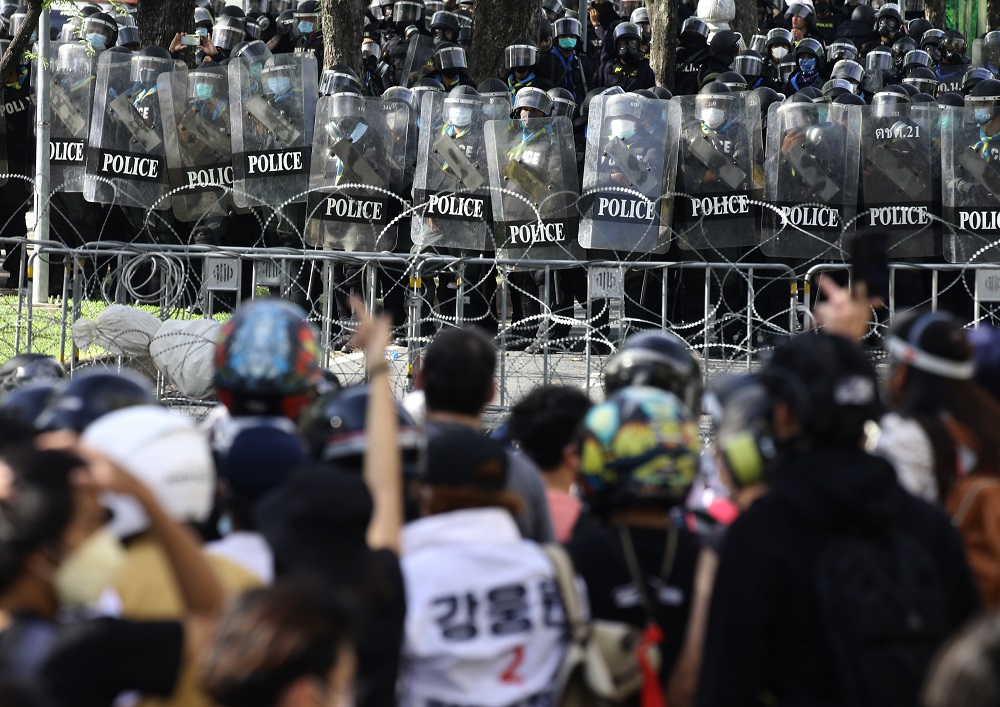The IPI global network today expressed grave concern over growing censorship in Thailand after the country’s telecommunications regulator warned the media against covering ongoing pro-democracy protests.
Late last month, the Thai National Broadcasting and Telecommunications Commission (NBTC) “invited” media representatives to a meeting in which the NBTC made a series of demands, which were cloaked as a “request for cooperation”.
Media were told to stop citing details of the protesters’ 10 demands related to reform of the monarchy, including abolition of Thailand’s oppressive lese-majeste law. The press was also ordered to avoid interviewing protest leaders, to stop showing live reports of the protests, and to otherwise drop discussions about the protests, including through talk shows.
While the NBTC’s demands technically did not amount to an order, it was made clear that media that ignore the “recommendations” could face criminal prosecution. In this context, the NBTC cited a ruling last month by Thailand’s constitutional court that protesters’ calls for reform equated to an effort to “overthrow the constitutional monarchy”, potentially opening the door for treason charges to be filed against protest leaders.
“It is outrageous and dangerous that the Thai authorities are seeking to censor media coverage of the pro-democracy protests, and suggesting that such coverage could amount to criminal, or even treasonous, conduct”, IPI Deputy Director Scott Griffen said. “The Thai public has a fundamental right to receive information about the protest movement, and the Thai media has a fundamental right to provide it. Thailand’s efforts to block media coverage of the protests is out of line with the government’s international human rights commitments. We calls on the Thai authorities to end this atmosphere of intimidation and allow the press to do its job.”
Pravit Rojanaphruk, a columnist and senior staff writer at Thailand’s Khaosod English newspaper, told IPI that the NBTC was “trying to coerce the press to further self-censor, beyond the scope of the lèse-majesté law”. Thailand’s mainstream press, he said, was increasingly forced to operate in a “parallel reality”, ignoring certain news developments related to the protests.
The result, he added, was not only a loss of news and information, but also – as information on the protests continues to flow on social media and through the foreign press – a growing lack of trust in the country’s mainstream media, which are seen as unable to cover or even take a minimal stand on the protest movement and the authorities’ suppression of it.
Starting in early 2020, Thailand’s youth-led protest movement has made unprecedented demands for reform of the country’s monarchy, a previously taboo topic enforced by a draconian lèse-majesté law. The protesters’ 10 demands include calls to abolish the lèse-majesté law and pardon those convicted under it, end the king’s legal immunity, put an end to royal propaganda, reduce taxpayer support for the monarchy and introduce new financial controls, and bar the king from endorsing any future coups.
Authorities have brutally cracked down on the protests in response. Over 150 protesters have been charged or arbitrarily detained since last year in connection with the demonstrations, with around two dozen still behind bars.
